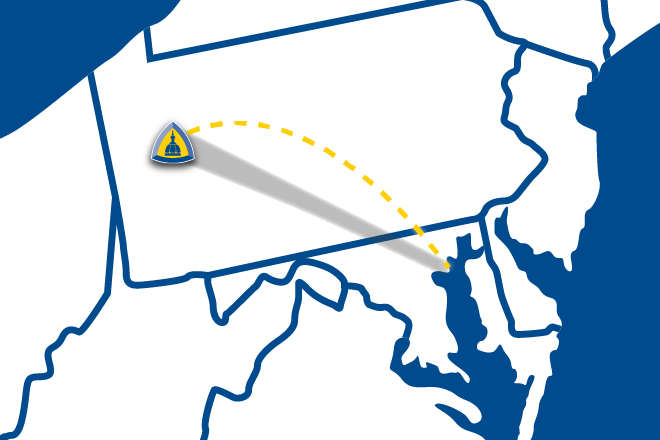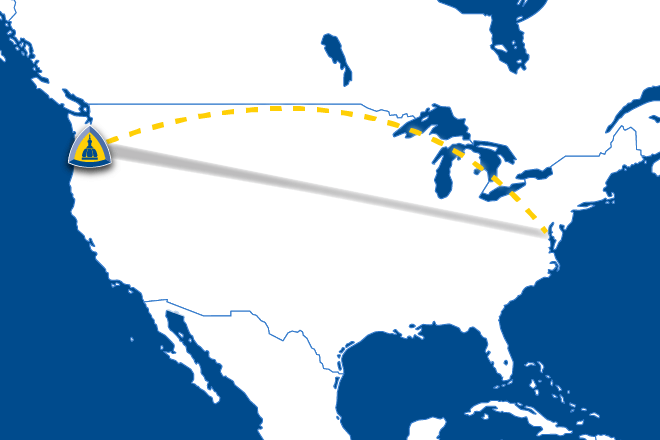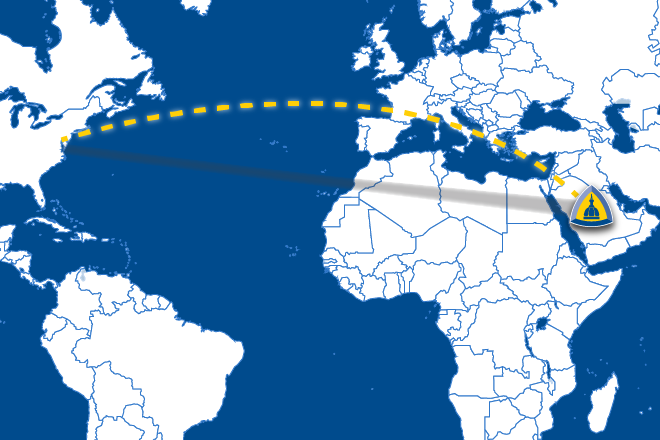Global Collaborations
The Armstrong Institute for Patient Safety and Quality Strategic Solutions team strives to expand patient safety and high-quality health care at home and around the globe. We work with like-minded organizations that share the Armstrong Institute’s vision of a health care system that harms less, wastes less and consistently provides high-quality, respectful care. Explore our collaborative efforts below.
Queens Health System - Hawaii

The Queens Health System (QHS) and the Armstrong Institute for Patient Safety and Quality (AI) has an ongoing partnership since 2015. Our goal is to advance patient safety and quality through shared innovations, education and learning. The initial collaboration started with Quality and Safety Board-to-Bedside Peer-to-Peer Assessment and Executive Retreats.
With support from AI, QHS has implemented 24 Comprehensive Unit-Based Safety Program (CUSP) teams to bring quality improvement efforts to the unit level. The specific scope of work changes every year based on the QHS needs but the overall collaboration focuses on three big areas: 1) Clinical Operations, 2) Training/Education, and 3) Research/Innovation, supporting ways to improve care at the bedside, build organizational capacity through training and education, and enhance the science of quality and patient safety through research and innovation.
Allegheny Health Network - Pennsylvania

The Armstrong Institute for Patient Safety and Quality (AI) completed three High Reliability Organizing assessments for Allegheny Health Network (AHN) between January 2021 and October 2022. These collaborative assessments were focused on specific aspects for the care of pediatric patients including the NICU, Burn care, perioperative care, medication systems and administration, facilities, and transportation.
The assessments included a review of readily available quality/safety reports, data, and survey results, followed by on-site visits which included a peer-review assessment of practices, including discussions, meeting observations, and clinical area visits. The team engaged in structured conversations with representatives at all levels of the organization from senior leadership to frontline staff. This approach provided the Armstrong Institute team with insights regarding the collective knowledge, experiences, and challenges of the staff and leadership.
The specific results for each site were presented to AHN leadership followed by a written report. Each report included both strengths and overall recommendations for quality and safety organizational structure as well as individual recommendations for each specialty area. The findings were well received by AHN and in alignment with current strategic planning.
MARS - Global

Johns Hopkins University, on behalf of the Armstrong Institute for Patient Safety (AI), and Mars Veterinary Health (MVH) has engaged in discussions regarding the provision of support, consulting, sharing of resources and training which focuses on Patient Safety and Quality initiatives tying to MVH’s strategic focus areas including:
- Focus 1 – Education, training and support
- Focus 2 – Research and Evaluation
- Focus 3 – Strategy and Co-development
- Focus 4 – Networking and partnership
- Focus 5- Event Reporting and Action Planning
Johns Hopkins Aramco Healthcare - Saudi Arabia

The Armstrong Institute for Patient Safety (AI) has been working with Johns Hopkins Aramco Healthcare (JHAH) since 2014 to provide technical and implementation support for improvements in leadership practices, culture, organizational systems and structures to support patient safety, process improvement work and clinical practice at Dhahran Health Center. Our efforts focus on widely inspiring staff to focus on eliminating preventable harm, signaling a strong focus on systems and not individuals, developing the organizational infrastructure and providing a foundation for publishable work that advances the science of patient safety. In addition to the educational and training deliverables through various workshops and observership programs, AI has been working collaboratively with JHAH to achieve the following deliverables:
- Measure and enhance Patient Safety Culture at Johns Hopkins Aramco Healthcare through administration of The Hospital Survey on Patient Safety Culture (HSOPS)
- Co-lead Annual International Quality and Patient Safety Symposium
- Coach Comprehensive Unit-based Safety Program (CUSP) and Surgical Unit-based Safety Program (SUSP) teams
- Run a Leadership in Patient Safety Fellowship program
- Build organizational capacity for patient safety and robust process improvement through various training, workshops and observership programs
African Partnerships for Patient Safety - Africa

African Partnerships for Patient Safety (APPS) was a World Health Organization (WHO) Patient Safety Programme concerned with building sustainable hospital-to-hospital patient safety partnerships. The program was focused on countries of the WHO African Region but has also opened the network and programme resources to all hospitals in all regions of the world.
APPS was concerned with advocating for patient safety as a precondition of health care and catalyzing a range of actions that strengthened health systems, assisted in building local capacity and helped reduce medical error and patient harm. The programme acted as a channel for patient safety improvements that could spread across countries, uniting patient safety efforts.
Through this program, the Armstrong Institute for Patient Safety worked with hospitals in Uganda, Liberia, and South Sudan. Our top priorities included but not limited to: Healthcare Waste Management, Hand Hygiene, Implementation of Safe Surgery Checklist, and Surgical Unit Safety Program (SUSP). The Partnership has been successful in co-developing initiatives, locally-adapting interventions, and having the local team take ownership of moving the efforts forward.
